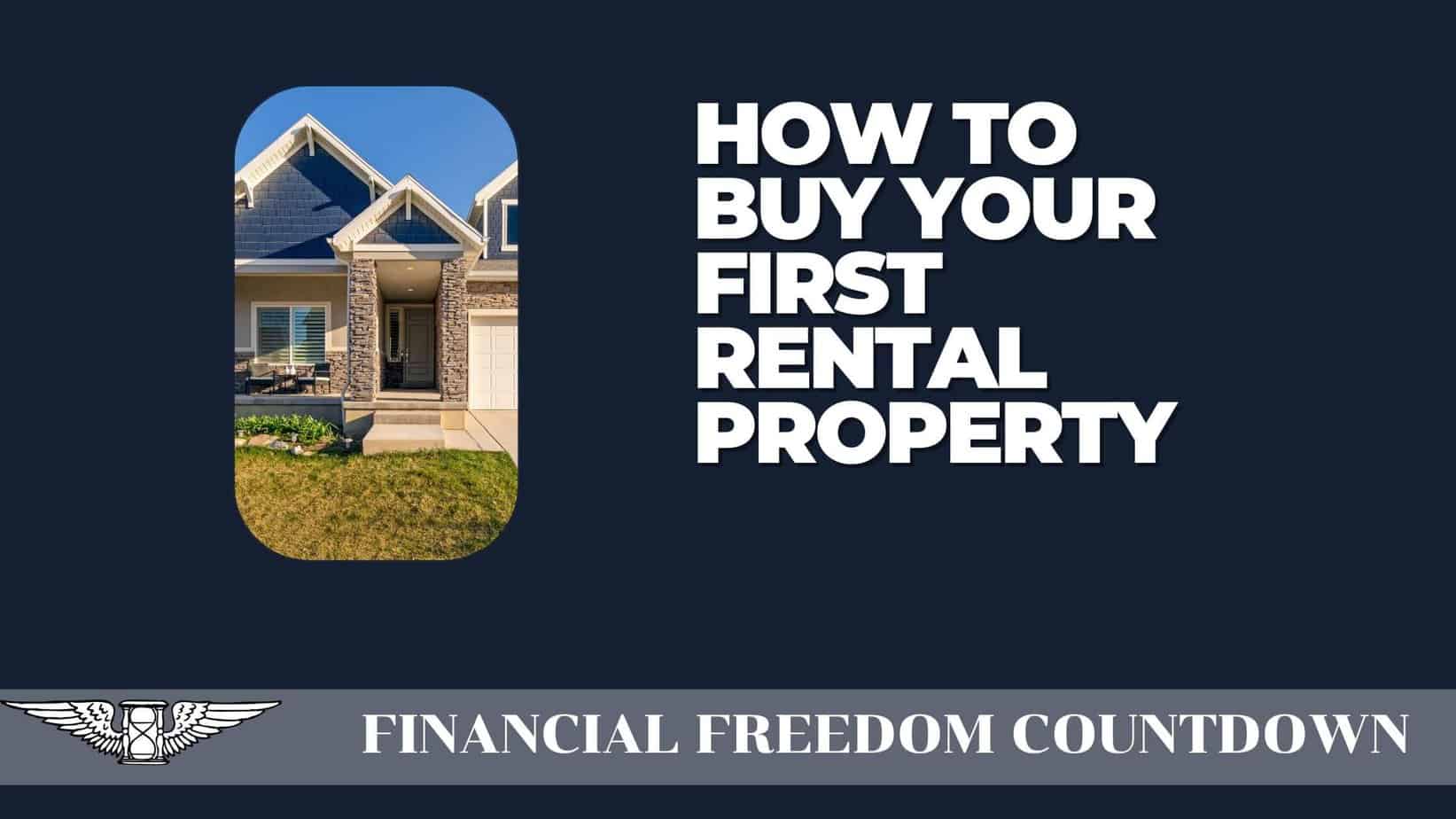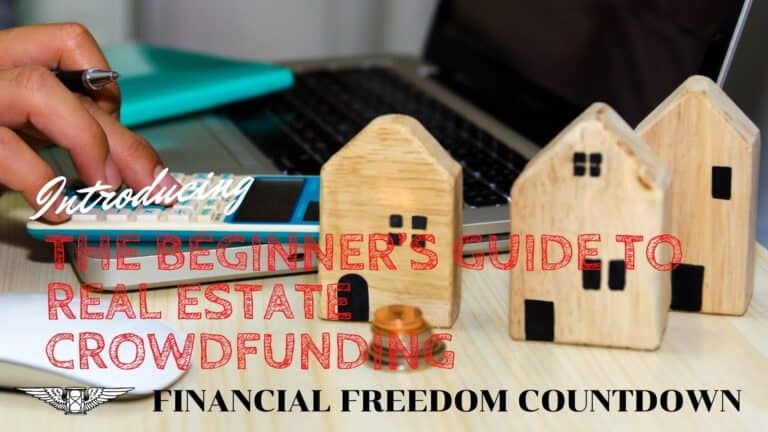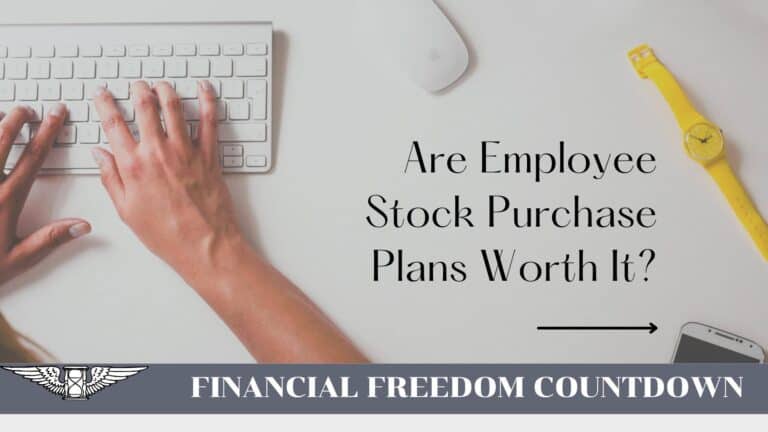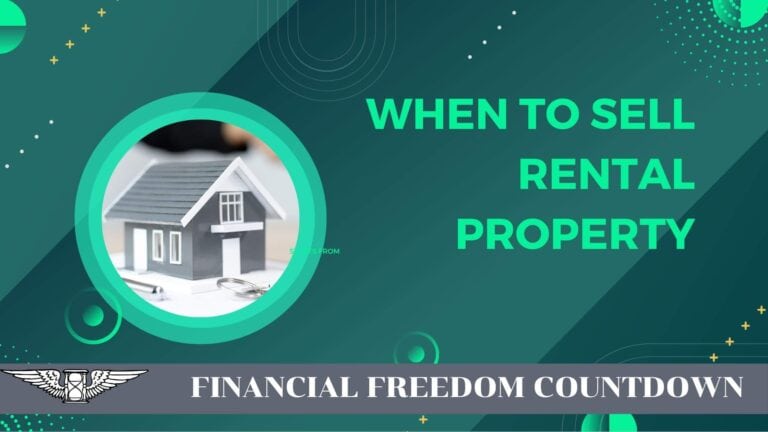How To Buy Your First Rental Property: Step-by-Step Guide

Investing in real estate can be a great way to build wealth, but it can also be daunting, especially if you are starting.
You may have plenty of questions about how to buy your first rental property. Finding the right investment opportunities, implementing practical deal filtering and financing strategies, and effectively managing tenant issues and ongoing maintenance expenses can be overwhelming. Let us tackle all these and more today.
Define Your Strategy
Are you looking for appreciation or cash flow? It would be ideal if your rental property could meet both criteria, but properties in locations that appreciate (San Francisco or NYC) do not cash flow as much as those in the Midwest.
Your strategy lets you decide whether to invest locally or out of state. Other considerations may also determine if you want to buy in the best states for real estate investors.
Demographics are the most vital criterion since you need more people than the available number of houses to ensure consistent demand for your investment property. You should track which states are losing population and determine if the trend will hurt you in the future.
Long-distance investing for your first rental property is difficult, but it is possible with a trusted local property manager handling all the issues.
Identify the Location and the Ideal Property
Before you begin to sign paperwork and borrow money, you’ll need to make sure you understand a specific neighborhood and how an investment in that neighborhood may impact your finances and ability to generate money for the future. This means extensive research into a variety of factors, including:
- What sort of condition is the neighborhood in? What do real estate agents, local neighbors, and social media have to say about where you are looking to buy? Remember that this information – including a general “feel” for a neighborhood – is critical when finding a great rental property and settling on a purchase price.
- What is the trend of home prices in the area you want to buy rental property?
- How many rentals already exist in the area? Can you find information on the annual rental income? Can you talk to other property owners to see their thoughts on the neighborhood?
- How will your neighbors react to a real estate investment and a potential renter? This shouldn’t be a deal breaker, of course, but it is something to consider, as good neighbors and a general feeling of neighborhood support are important considerations. HOAs restrict the number of rental units, so factor that in when you buy a rental property.
- Are there any factors in this neighborhood that would stop you from investing? For example, will homeowners, renters, or landlord insurance be potentially prohibitively expensive? How much will property insurance cost?
- What sort of tenant are you looking to rent to, and how does your proposed neighborhood cater to those tenants? This is an important consideration because some areas match some tenants better. Are you looking for college students since your rental is in a university town? In that case, school districts for kids likely are less of a consideration, but nightlife and cultural amenities may be. Are you looking to recruit workers? Then, the neighborhood should have many employers, stable internet access, and robust public transportation or road infrastructure options.
Filter Properties Based on Rules of Thumb
With your strategy, location, and potential property identified, you can now apply the rules of thumb to evaluate buying the rental property and filter out the ones not meeting your criteria.
Determine which properties meet the 1% rule of thumb for rental properties. So, if you buy a $200,000 single-family home, would it rent for a monthly rent of $2,000? In my experience, it is hard to find such properties in Class A or Class B neighborhoods, with everyone overpaying in the hopes of running a successful Airbnb empire.
Although you might not be investing in apartment buildings as your first rental property, it is crucial to understand the significance of the cap rate, net operating income, and cash-on-cash return projections. I have been to several real estate investor group meetups where first-time investors are in trouble because they overleveraged on a few deals.
Understand the Financing of Buying a Rental Property
If you have bought a home before, you are likely familiar with the general process: You find a home you like in a neighborhood you want to live in, save money up for a down payment, go through the mortgage process, and eventually complete the sale.
As you can imagine, buying rental properties is much more complicated.
Start by talking with your real estate agent who works with investors. They can walk you through the financing basics and help determine if the property will cash flow based on the rental options.
Credit Score
First, you’re going to have to have a higher credit score. With an excellent credit score, you can acquire the financing and borrow the money you need to purchase investment properties.
Down Payment
Next, understand that you will likely have to make a much more sizable down payment than you did with your primary residence. While the down payment on FHA loans for owner-occupied homes like your forever home can be as low as 3.5%, you usually need a 20-25% down payment for investment properties.
Debt-to-Income Ratio (DTI)
Also, remember that your debt-to-income ratio will be higher now, making it more difficult to get pre-approved loans. You probably already have an existing mortgage on your starter home, and that additional mortgage makes you a bit more of a risk to a bank or financing agency.
New investors must save before making their first down payment on a rental property. DTI may not matter for your first rental property, but it becomes a limiting factor as you push the limits on how many mortgages you can have.
Documents for Mortgage
Be prepared to supply documentation, including tax returns, bank statements, a business plan, and more.
Do not apply for credit cards or auto loans a few months before buying real estate investments.
Remember that some banks may even require you to prepay or hold a certain amount of mortgage payments in escrow. Saving up these mortgage payments will, of course, drive your costs even higher.
While this entire process can be expensive and time-consuming, experienced rental property owners and real estate owners understand it is critical to any real estate investment efforts. If you or your family want to become rental property investors, you must manage these steps to acquire a rental property loan.
Financing Alternatives
Yes, it is possible to buy real estate with little or no money down, but those methods involve a lot of sweat equity. If you do not have the necessary funds, refrain from expensive sources of financing such as hard money loans.
Creative real estate financing strategies like seller financing could work, but you would risk your first rental property.
A better option is house hacking. Living in the same premises as your tenants ensures you can practice the basics of being a landlord. Also, you can be more selective in your tenant selection criteria without running afoul of Federal and State laws.
Another workaround can be buying a multiplex home as your combined primary and rental using FHA loans with only a 3.5% down payment. With this strategy, you can buy a fourplex, live in one unit, and rent out the other three units. You get all the benefits of owner-occupied loans, and the lender will consider 75% of the expected rental income for your DTI ratio.
Ensure the Finances Work
Owning a rental property is more challenging than making sure you collect the rent. You must understand where your income will come from, potential expenses, and how you will manage specific scenarios – like lost rental income. This is even more important when buying your first investment company.
Experienced real estate investors know that they have to create an entire in-depth budget for each property that they have. This budget should display a comprehensive list of income and expenses, showing your cash flow and where potential pitfalls with each rental property may lie.
On the income side, the answer is relatively simple: How much rent income does each rental property generate? However, rental property owners with experience know that rent income isn’t always steady:
The potential always exists that your tenant may not pay their monthly rent on time. Your budget must account for this by determining how you will manage your cash flow. After all, even if your tenant doesn’t pay the bills, you will still have to make loan payments, pay property taxes, and manage other related expenses.
How long can your property or finances survive without a positive monthly cash flow? How many monthly payments can be missed before you start to run into major financial problems?
It is also important to remember that you may have some smaller, ancillary sources of income that come with a property. Do you have laundry on-site but charge for it? Are you also charging for a pet to be on the property or for additional storage? Value-added real estate changes can improve the cash flow.
Finally, how are you managing essential bills, including electricity, internet, and utilities? These critical questions can help you boost your cash flow but may also add severe management burdens.
At the same time, offering these services for free may enhance the marketability of your listing, making it more competitive and enabling you to get a higher-quality or more reliable tenant.
Furthermore, there are tax benefits to owning a rental property, including paying property taxes, managing depreciation, deducting expenses, and applying QBI for rental properties. It would help if you spoke to your accountant or financial advisor to determine how your situation impacts your tax payments.
The expense side of this equation can be much more comprehensive and expensive. After all, every rental property has significant expenses. These include:
Mortgage or Personal Loan Repayment
No other expense is more critical to manage than paying back your bank loan or other loans on your property. You have a financial and legal obligation to ensure that you continue to pay back your loan and stick to any payment schedule established between you and your lender.
If you have problems meeting payments, you can work out alternative payment plans or extensions with your bank, but that will only work for so long.
Furthermore, your bank won’t care if you don’t have a tenant at a given moment – they want their money. To that end, you must build a buffer and ensure you can weather any financial storm. Lately, eviction moratoriums in certain cities of California have lasted more than three years, so at a minimum, expect to have three years of mortgage, taxes, and insurance costs in reserve.
Property Taxes, Fees, and Insurance
It is a common misconception that renters don’t pay taxes – that’s just not true. Property taxes always have to be paid on any property. You will have to build property taxes into any rent payments.
Furthermore, like your mortgage payment or other loans, you must continue paying property taxes regardless of whether your property is occupied at any moment. Besides property taxes, you also have registration fees for short-term rental property.
Consider insurance for the property, landlord insurance, and umbrella insurance needs. You could limit liability by getting a mortgage for an LLC-owned property, but the process is tedious and not recommended for beginners.
Maintenance Fees
Every property requires upgrades, and part of owning a suitable investment property means engaging in the upkeep that will allow you to maintain the property.
You must budget some money for regular repairs, lawn mowing, snow removal, and more. You can certainly build these costs into the rent, but at a bare minimum, you should expect to have to manage them.
Capital Expenses
Remember to set money aside monthly for capital expenses such as replacing plumbing and electrical or installing a new roof.
Property Management Fees
To buy a rental property, one of the most important decisions is whether or not you will want to pay a property management company to handle your property. Often, a property manager can handle all maintenance, tenant screening, renter complaints, etc.
Of course, they don’t do this for free, and property management fees can take up a considerable portion of your operating expenses. To that end, you must determine if you have the expertise or capacity to rent your property and how this may affect your total maintenance costs.
You’ll also have to remember that finding solid property managers is more complex than doing a quick online search and hoping for the best. Property managers can make or break your investment, so you need to take the time to find good ones that can meet your needs and keep your tenants happy.
New Tenant Costs
You always have to budget for getting a new tenant. These costs may include advertising, screening, legal, and more. While this is hopefully not a regular cost for your property, it is critical that you consistently have the money budgeted that will allow you to manage this expense.
Example of Financials for a Rental Property
| Purchase Price | $200,000 |
| TOTAL INCOME (Monthly Rent) | $2,000 |
| Monthly Mortgage (20% down payment and 30 year fixed at 7.66%) | $1,136 |
| Monthly Property Taxes | $132 |
| Insurance | $66 |
| Vacancy (10% assumption) | $200 |
| Maintenance (5% assumption) | $100 |
| Capital expenses (5% assumption) | $100 |
| Property Manager fee (5% which is lower than average) | $100 |
| TOTAL EXPENSES | $1,834 |
Make Your Offer
Once you have done your due diligence, it is time to find a property that works for you! You can find desirable locations by talking with other investors, checking real estate websites, or discussing your options with real estate agents. It would be best to build your portfolio based on what will best suit your needs and what properties will be relatively easy to rent.
When making an offer, you must keep multiple considerations in mind. These include:
- Can you afford the down payment required?
- What sort of owner financing or other financing options are available to you? Do you need to resort to creative financing strategies or private money?
- What are the loan terms that you will be pursuing? Would you opt for a 15 or 30-year mortgage? I always prefer a 30-year fixed-rate mortgage for my rental properties.
- How good is your credit, and how will that impact other critical factors related to the loan, such as interest rates?
- How much will your closing costs be, and how much are you expected to bring to a deal?
The answer to these questions will ultimately determine the meat of your offer.
Of course, these aren’t the only considerations when you make an offer. Other things to keep in mind include:
- Is this your first investment property? Are you new to real estate investing entirely? This is important because if it is, you may not have the experience or expertise to manage any questions related to the property correctly. If so, you should work with additional experts or consultants in this process, even if it means paying more upfront.
- What is the overall trend of the neighborhood? This is important to consider because it may impact rent prices, the desirability and credit score of tenants, and how much your property will be able to get when you eventually sell your property.
- What type of house are you looking to purchase? Are you looking at small multifamily properties, apartments, or single-family homes? Remember that this will affect the property’s real estate value, how easily you can rent the property out, and what sort of interest rate you can get.
- Are others competing for the property as well? If so, be prepared: You may have to bring more money or make a higher offer. Consider making a conditional offer, in which you offer a specific price but indicate a willingness to match any other bid up to a particular price. This is a best-of-both-worlds scenario, as it allows you to make an offer but be willing to go higher if required. However, only chase a deal and overpay if the numbers make sense.
- What is the condition of the property in question? If it is older – or brand new – it may have problems and higher maintenance costs than you originally budgeted. Of course, it may mean you must be prepared to pay more.
Inspection
Buying your first rental property can be expensive, but do not skip inspection. It is vital to know if there are any glaring issues with your rental property.
The money spent on inspection is well worth it since the inspector identifies all major and minor issues. You can now negotiate with the seller for repair credits or decide not to pursue the deal.
If you included inspection contingencies in your offer, you should not lose your deposit if you leave the deal after reading the inspection report.
When I buy a rental property, certain inspection items, such as foundation issues or knob and tube wiring, will cause me to terminate the deal. Yes, distressed real estate investors are OK to tackle these issues, but in my experience, it is not worth the hassle.
If you decide to make repairs based on the inspection report, ensure you maintain proper documentation so that it is tax deductible.
Closing Process
Signing for your first rental property will involve a lot of paperwork. Experienced investors know that this is the last stage of the property transfer process but also one of the most important. By this point, you should have signed all the checks, completed any inspections, and ensured that any outstanding issues were addressed.
You must bring a certified check for your final closing costs at closing. You’ll also need a notary on hand to notarize all necessary documents. The title company or the real estate agent who helped you complete this transaction would have the list of available notaries.
The title company will also check that no other claims exist on the property, and title insurance can help you resolve any issues.
The most important thing here is no surprises in the final closing process. If there are any issues, you should not have to renegotiate them. After all, all parts of this process should now be done.
Ongoing Monitoring
Your property management is not complete once you finally close on the property. From there, it is time to rent your property out!
It involves several steps, including preparing your property for listing, handling legal requirements, tracking income and expenses – and paying the bills. That last step is most important, particularly given that you still need to get a tenant on hand to start generating rent.
First-time landlords are often worried about the tenant screening and management process. RentRedi is landlord-tenant software that makes it easy for landlords to manage their properties. RentRedi enables landlords to list properties, screen tenants with TransUnion-certified background checks, receive mobile-submitted rent, and manage maintenance requests.
Ensure you have enough savings cushion to get you through the first few months of property ownership. It should allow you to pay the bills and ensure that you will be prepared to do whatever is necessary to market your property accordingly.
Finally, while it isn’t strictly related to your income or expenses, you will still want to ensure that you track your property value. After all, you don’t just buy a rental property for rent. It is also an investment property.
Of course, housing prices can fluctuate over time. Making sure you invest in properties that accumulate value over time is a massive part of being a successful real estate investor, and this is necessary for generating money for any income property and ultimately creating generational wealth.
Treating your first property as a legitimate business is the best way to get rich.
Is Buying a Rental Property the Best Option for You?
Real estate is one of the most attractive options when considering income-generating assets. After all, real estate can generate cash flow with rental income, increase in value over time, and allow you to save on taxes. When done right, your first rental property can turn into your second or third, ultimately enabling you to become a real estate millionaire.
Buying rental property could increase your average net worth.
However, although the IRS classifies rental income as “passive income,” that is deeply misleading. There is nothing passive about owning a rental property. There are many steps that real estate investors have to take to maximize their chances of success, guarantee cash flow, and protect their investments.
Even if you hire a local property management company, you may still need to stay engaged in overseeing your investments. This might entail authorizing necessary repairs or improvements and regularly analyzing financial statements, such as income and net cash flow reports.
Despite stringent tenant screening, you may encounter situations where tenants pay rent late or require eviction. These challenges can impact potential profitability and returns, not to mention the additional time necessary to manage the eviction process.
If you have a 7 figure salary job, your time may be better focused on passive real estate income options that do not involve buying a rental property.
Some of these options include
Real Estate Notes
Real estate note investing is a way to buy the real estate and property debt at a discounted price to acquire the property. Investors find note investing very profitable as they can buy a property at a lower cost, cover the debt accumulated, and resell it at a higher price.
Essentially, the investor is the bank for the individual purchasing the property. Most note investing opportunities are restricted to investors meeting the accredited investor qualifications.
Platforms like Yieldstreet provide investment options in art, real estate, legal, structured notes, venture capital, etc. They also have fixed-income portfolios spread across multiple asset classes with a single investment with low minimums of $10,000.
Real Estate Crowdfunding
Real Estate Crowdfunding allows several investors to pool their money together and buy a real estate investment property with the contributed pool.
Streitwise is available for non-accredited investors. They have one of the lowest fees and high “skin in the game,” with over $5M of capital invested by founders in the deals. It is also open to foreign/non-USA investors. Minimum investment is $5,000.
Turnkey Property
A turnkey property is a rental property that has been refurbished and wholly renovated before being sold to a real estate investor. They are available for tenants immediately, and some already have tenants, which means an investor starts to collect passive income instantly.
Roofstock is an online marketplace for tenant-occupied single-family homes—many pre-inspected, come with a tenant in place, and generate cash flow. Some even offer vacancy protection or a 30-day money-back guarantee.
REITs
Real Estate Investment Trusts (REITs) are sold as stocks on the stock exchanges. REITs are perfect for investors who want to participate in the real estate market but don’t have the money or the interest in buying real estate properties.
Some of the most popular diversified real estate index ETFs are Vanguard (VNQ), Schwab (SCHH), and Fidelity (FREL). Publicly traded REITs have the advantage of simplicity and liquidity.
One can buy publicly traded REITs using no-fee platforms like M1 Finance for as low as $10. Check out my M1 Finance review for more details on dollar-cost averaging your REIT purchases.
Determining if investing in a rental property aligns with your financial goals and risk tolerance is crucial. Although rental properties are great investments for monthly income, they are not considered liquid assets.
A well-chosen investment property can offer recurring rental income, long-term appreciation, and tax benefits like mortgage interest deductions, operational expenses, and depreciation.
Investing in rental property has its complexities, but with the right approach, it can become a rewarding endeavor with a trifecta of financial advantages. And before you know it, you can retire early by investing in real estate.

John Dealbreuin came from a third world country to the US with only $1,000 not knowing anyone; guided by an immigrant dream. In 12 years, he achieved his retirement number.
He started Financial Freedom Countdown to help everyone think differently about their financial challenges and live their best lives. John resides in the San Francisco Bay Area enjoying nature trails and weight training.
Here are his recommended tools
Personal Capital: This is a free tool John uses to track his net worth on a regular basis and as a retirement planner. It also alerts him wrt hidden fees and has a budget tracker included.
Platforms like Yieldstreet provide investment options in art, legal, real estate, structured notes, venture capital, etc. They also have fixed-income portfolios spread across multiple asset classes with a single investment with low minimums of $10,000.



